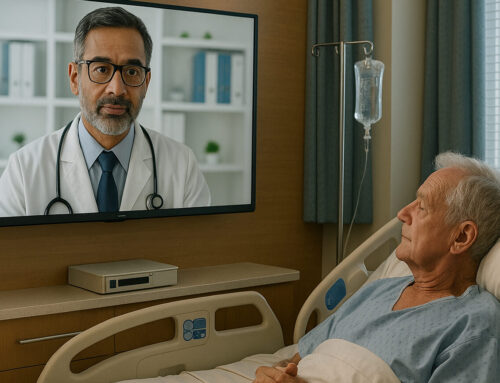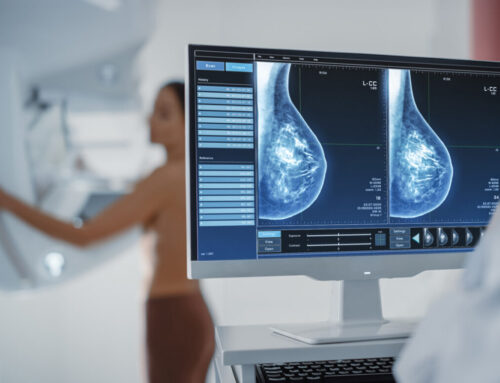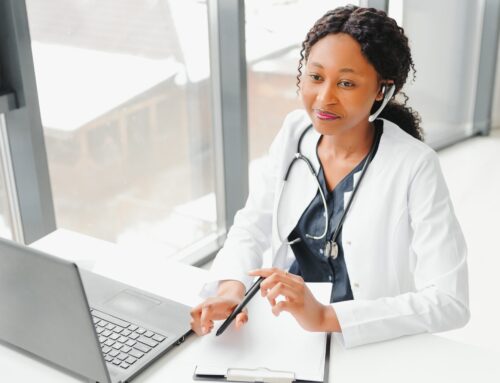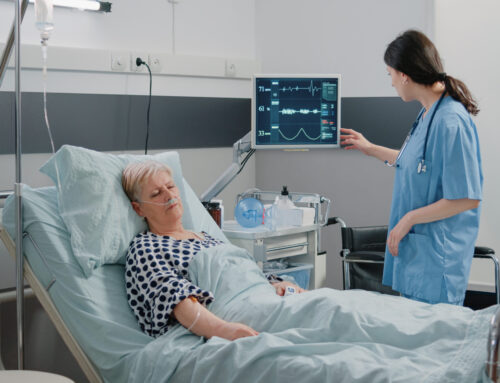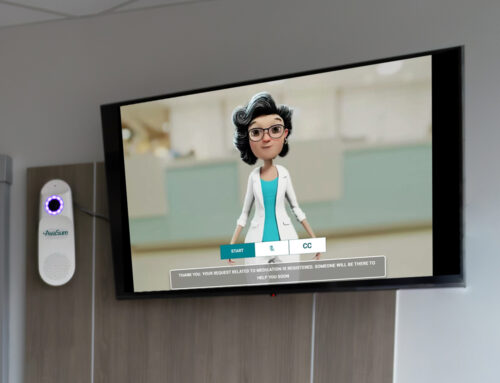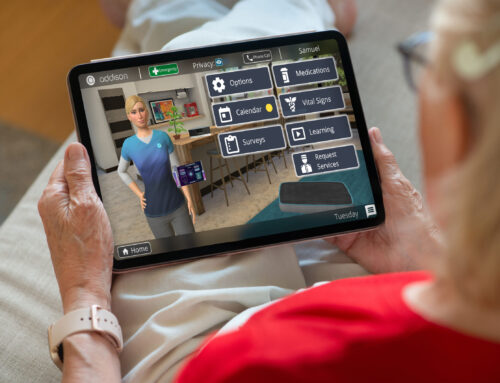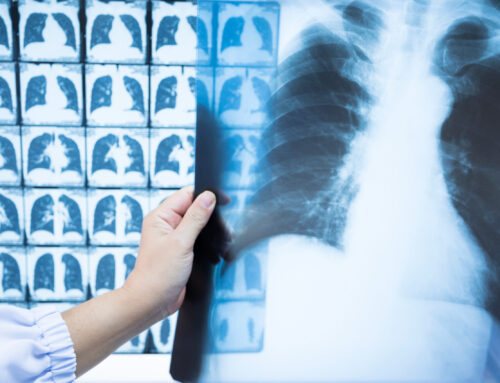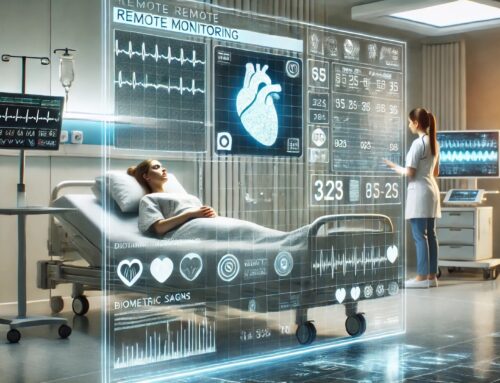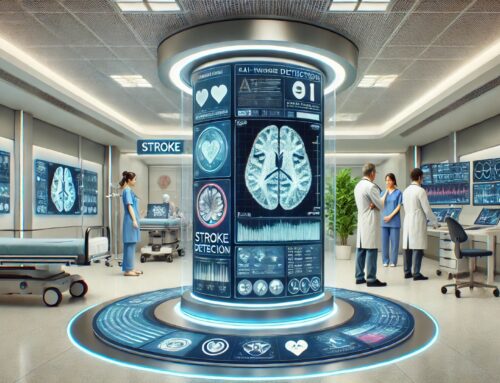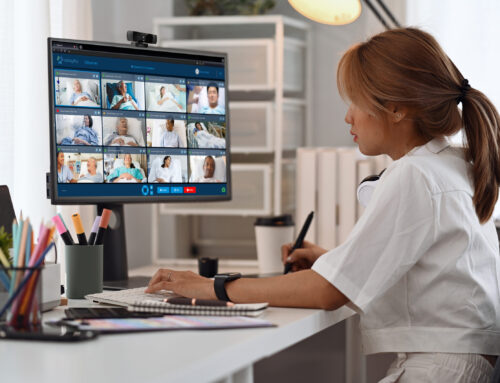The statistics surrounding the COVID-19 pandemic continue to be startling, despite the ever-growing mental and physical fatigue that we’ve all experienced living through this frightening, intimidating and unprecedented era. More than 125 million cases worldwide have resulted in a death toll closing in on three million, while in the United States alone, 30 million reported infections have resulted in a death toll that reached 550,000. (1) One thing that can be said for certain about COVID is that it has changed the medical field drastically.
“One of the most important lessons we learned is that telehealth and virtual care are really important augmentations to our healthcare matrix and they’re here to stay,” says Stuart Long, CEO of Infobionic, which has been adapting and improving its own cardiac monitoring technology to meet these new needs.
The umbrella term for the advances that Long is describing is “telemetry,” which refers to the automatic measurement and transmission of data at a distance, generally via wireless technology these days, yet typically seen only inside the hospital. While Infobionic focuses on remote cardiac monitoring technology and rising importance around ‘always on’ remote health are drivers to extending telemetry beyond the hospital walls are indicative of its future importance. He firmly believes that the future of healthcare will be a hybrid model, one that combines virtual, noninvasive monitoring with consultations with physicians as well as traditional physical exams. He explains that brick-and-mortar facilities may not be the best places for patients right now, while the hybrid model that’s emerging gives patients more choice and autonomy over their health care decisions.
In the wake of the worldwide COVID-19 health crisis, even traditional healthcare systems are adapting. The Centers for Medicare & Medicaid Services has issued a sweeping array of new rules and waivers being promoted as “Hospitals Without Walls.” The initiative is designed to empower hospitals and health care facilities to provide services beyond their existing facilities, not only to enable COVID-19 treatment but also to support healthcare needs that were traditionally delivered within physical locations. Patients could use something like InfoBionic’s evolving MoMe® Kardia cardiac monitoring platform, where an individual wears a small monitor that streams their cardiac data in near real-time to the cloud. The information and a complete record are then proactively delivered to the cardiologist, who can access the information anytime, anywhere.
The medical evidence that has emerged from COVID studies has also lent itself to the rise of remote monitoring technologies. The Coronavirus is a terribly tricky disease for the major reason that it affects each patient differently. Some people have symptoms that are no worse than a mild cold, while a thus-far misunderstood inflammatory syndrome attacks a variety of vital organs, among them the liver, lungs (5) and heart. (6)
Long affirms that remote patient monitoring is here to stay, not just because of urgent medical needs that have emerged this year, but also because of patient demand. According to a study by McKinzie, consumer use of telehealth services has risen from 11 percent in 2019 to 46 percent now using telehealth to replace traditional healthcare visits, while providers are now seeing between 50 and 175 times the number of patients via telehealth. (7) Monitoring services for conditions beyond cardiac care may include obesity, diabetes and arrythmias and atrial fibrillation (AFIB), which could potentially create a market for telehealth that could total over $250 billion in healthcare spending within the next few years. (8)
“The landscape has wholly shifted in the realm of telemedicine due to the pandemic,” says Long. “Hybrid models are patient centric, easily portable to the virtual world, and they’re much safer for patients whether they’re at risk for COVID-19 or not. The biometric solutions that InfoBionic and other partners are creating aren’t just fueling the meteoric rise of telehealth. We’re changing how our patients access healthcare, improving timely and accurate data analysis, and improving patient outcomes. This is a rare win-win scenario for everyone.”
About InfoBionic
InfoBionic is a digital health company transforming the efficiency and economics of ambulatory remote patient monitoring processes by optimizing clinical and real-world utility for the users that need it most – physicians and their patients. The Massachusetts-based team of seasoned entrepreneurs have had successful careers in healthcare, IT, medical devices and mobile technology, and bring specific expertise in remote monitoring and cardiology. They have seen first-hand the complexities of traditional cardiac arrhythmia detection and monitoring processes and designed the transformative MoMe® Kardia platform to remove the roadblocks hindering faster, more effective diagnosis and decision-making. Frost & Sullivan bestowed the 2019 North American Remote Cardiac Monitoring Technology Leadership Award upon InfoBionic.
- Johns-Hopkins University & Medicine. “COVID-19 Dashboard by the Center for Systems Science and Engineering (CSSE) at Johns Hopkins University (JHU)” coronavirus.jhu.edu/map.html Accessed March 2021
2. Phillips. “Philips completes the acquisition of BioTelemetry, Inc.” philips.com/a-w/about/news/archive/standard/news/press/2021/20210209-philips-completes-the-acquisition-of-biotelemetry-inc.html - Healthcare IT News. “Phillips Will Buy Remote Patient Monitoring Company Biotelemetry”
healthcareitnews.com/news/philips-will-buy-remote-patient-monitoring-company-biotelemetry Accessed March 2021
- Medical Device and Diagnotic Industry. “Connecting the Dots on Recent ECG Monitoring M&A Spree” mddionline.com/digital-health/connecting-dots-recent-ecg-monitoring-ma-spree Accessed March 2021
- USA Today. “Fact check: COVID-19 can cause worse lung damage than smoking” usatoday.com/story/news/factcheck/2021/01/26/fact-check-covid-19-can-cause-worse-lung-damage-than-smoking/4237874001/ Accessed March 2021
- American Heart Association. “What COVID-19 is Doing to the Heart, Even After Recovery.” heart.org/en/news/2020/09/03/what-covid-19-is-doing-to-the-heart-even-after-recovery Accessed December 2020
- McKinsey COVID-19 Consumer Survey, various dates in 2020
- CMS.gov Medicare telemedicine health care provider fact sheet, March 17, 2020

